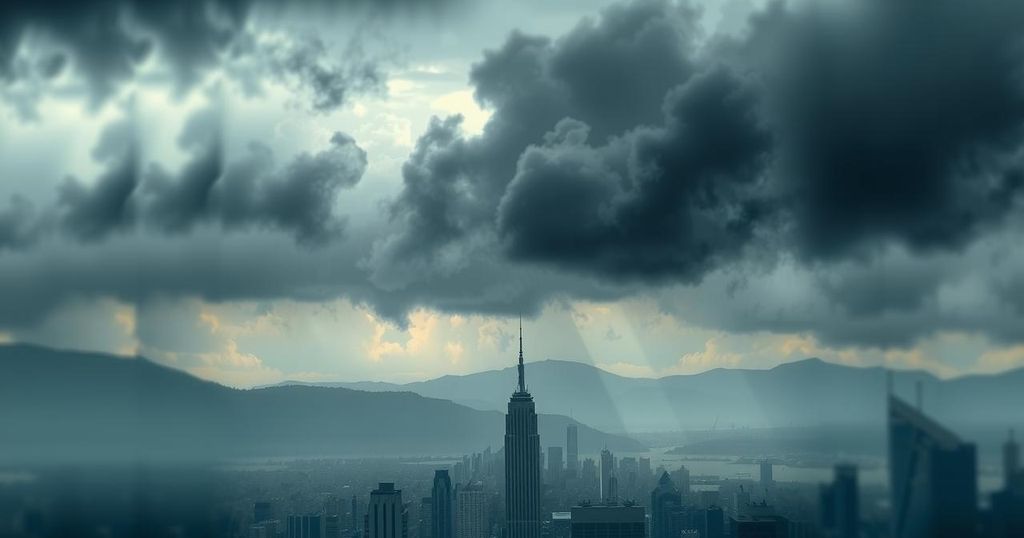Goma, a city in eastern DR Congo, recently fell under the control of the M23 rebel group after intense violence led to significant casualties. The local population grapples with a humanitarian crisis as medical facilities struggle to treat countless injured, and businesses remain deeply affected by the prevailing insecurity. Meanwhile, the DRC government denounces the M23’s claims to legitimacy, which are viewed as backed by foreign support, particularly from Rwanda.
Upon entering Goma, a city in the eastern Democratic Republic of the Congo (DRC), one might not immediately perceive it as a conflict zone. The streets were bustling with residents, moving to work and vendors selling goods. However, a stark realization occurred at a checkpoint where M23 rebel fighters had taken control, marking a significant shift in authority after their recent capture of the city, leading to violence resulting in numerous casualties.
M23, composed mainly of ethnic Tutsis, claims to advocate for minority rights while the DRC government contends that they are motivated by the region’s mineral wealth. As I navigated through Goma, I encountered checkpoints manned by M23 fighters who appeared to have a firm grip on the situation, overseeing the city’s operations without local military opposition.
At a local hospital for the injured, the suffering was palpable. Dr. Nathaniel Cirho, himself wounded, recounted the aftermath of nearby bombings, highlighting the tragic impact on the community. An elderly woman shared a harrowing tale of surviving a gunshot wound, demonstrating the dire medical conditions as hospitals struggled to cope with the influx of victims.
Reports indicate that healthcare facilities are overwhelmed, with medical professionals treating hundreds injured by gunfire. One doctor noted they received hundreds of patients on the first day of violent clashes. The intensity of the situation has raised concerns, as incidents of sexual violence in this conflict have been reported, reinforcing its characterization as a humanitarian crisis.
The atmosphere in Goma is one of a fragile calm, intermingled with anxiety. While some businesses have started to reopen, the sense of insecurity remains palpable; local shop owners express fear over potential future unrest. Many residents have fled to safer locations, further crippling the local economy.
The M23 rebel group now appears to assert substantial dominance in Goma, taking control of key governmental offices and patrolling the streets unopposed by Congolese forces. Reports indicate that recent confrontations have resulted in a significant loss of military presence for the DRC, showcasing the rebels’ rising influence.
The DRC government continues to assert claims over Goma, denouncing the M23 occupation, which they allege has been facilitated by Rwandan support. The ensuing conflict threatens to escalate, with M23 now reportedly advancing further into DR Congo. The situation in Goma serves as a grim preview of the potential implications of further territorial gains by the rebels in the region.
The current conflict in the eastern Democratic Republic of the Congo has seen increased violence and displacement, particularly with the emergence of the M23 rebel group. The situation is deeply rooted in ethnic tensions, particularly between Tutsis and other groups, as well as the struggle for control over the region’s rich mineral resources. This area has long been marred by instability and warfare, impacting millions of civilians and creating a humanitarian crisis.
In conclusion, Goma’s current state highlights the grave humanitarian and security challenges faced by civilians amid escalating conflict. The M23’s takeover represents a significant power shift and reflects ongoing ethnic tensions and geopolitical influences. With healthcare systems overwhelmed, economic activity disrupted, and the potential for further violence looming, the future for Goma and its residents hangs in a precarious balance.
Original Source: www.bbc.com






